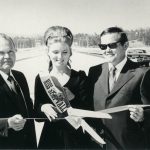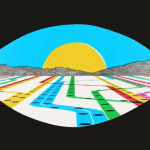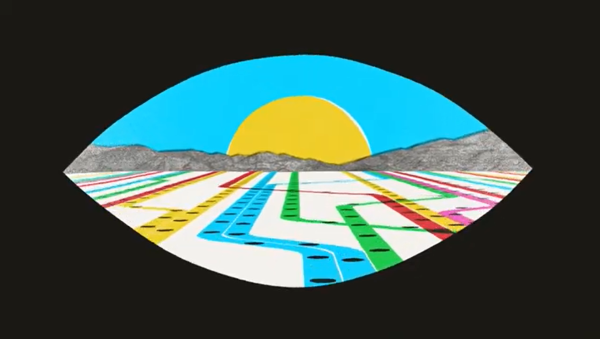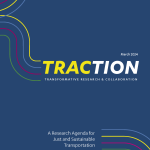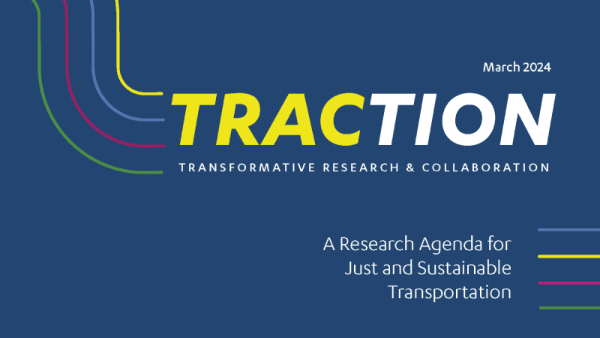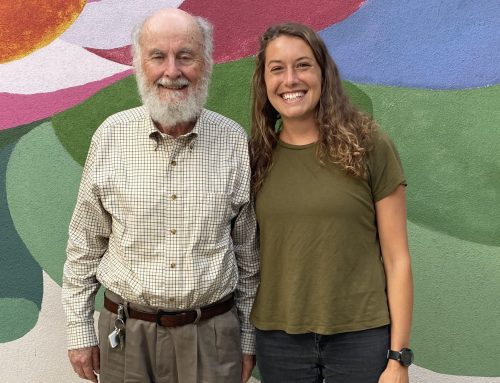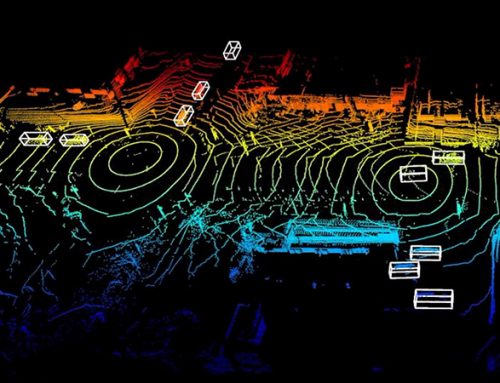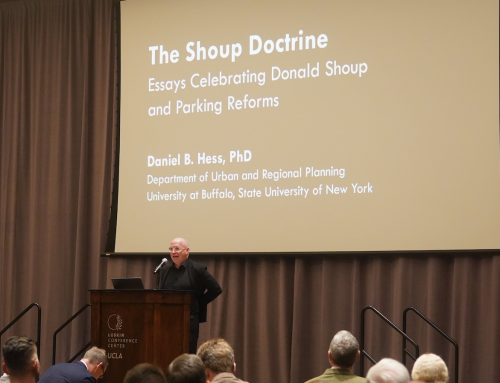New film explores challenges, joy of ‘Biking While Black’
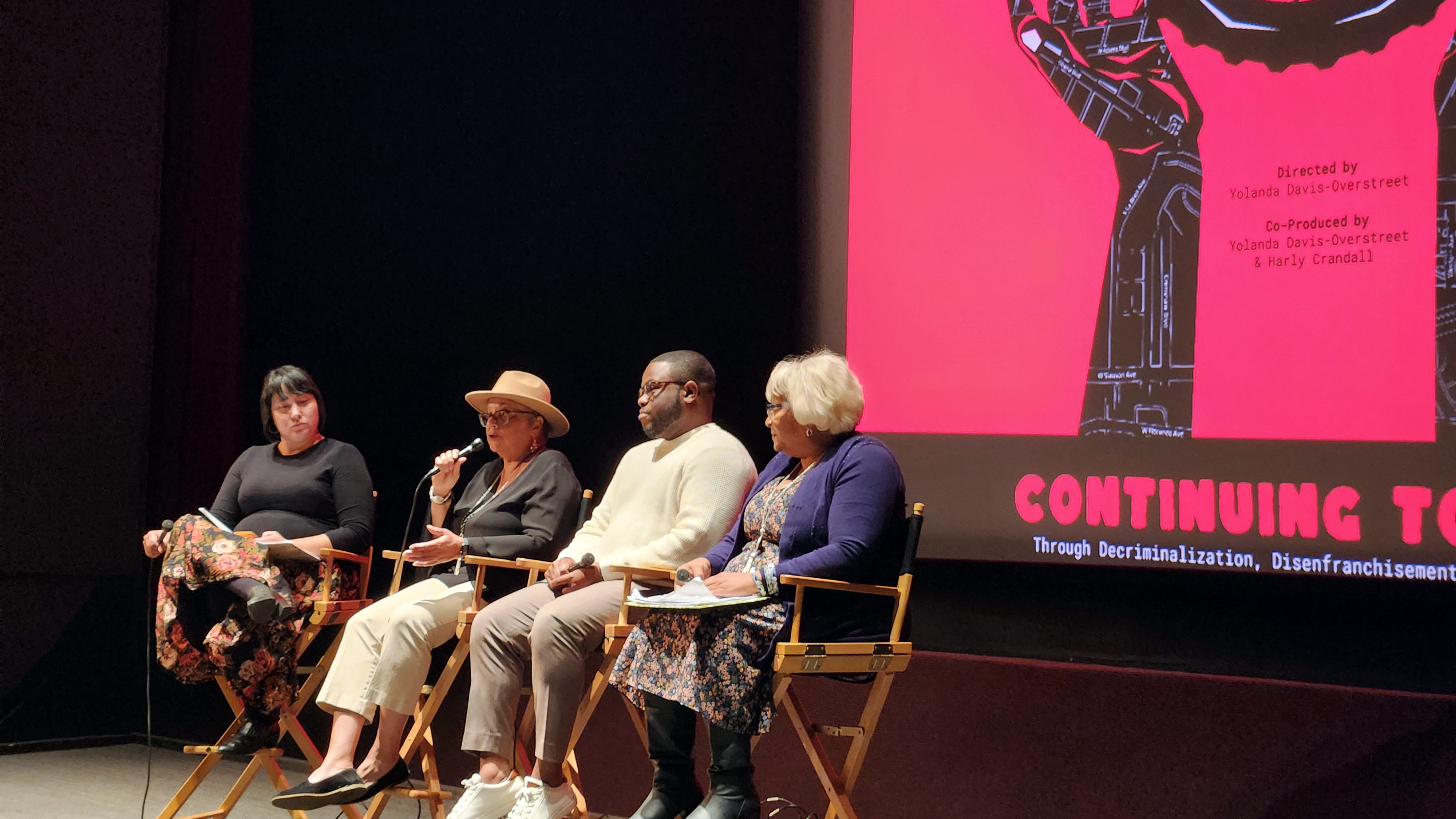
by Jo Dine
A new documentary that looked into the barriers faced by Black bicyclists in Los Angeles and their efforts to promote mobility justice screened on Feb. 7 at the UCLA campus.
“BIKING WHILE BLACK: CONTINUING TO RIDE THROUGH DECRIMINALIZATION, DISENFRANCHISEMENT AND GENTRIFICATION” is a 30-minute documentary by filmmaker and activist Yolanda Davis-Overstreet. This documentary is the second installment in Davis-Overstreet’s BIKING WHILE BLACK series, intended to depict the joy and challenges of biking for Black Los Angeles communities. The new film centers people who ride bikes, pedestrian safety advocates, community leaders, and government workers, among others.
A panel discussion followed the screening with Davis-Overstreet, along with two other cast members featured in the film: David Price, director of racial equity for the City of Los Angeles Civil + Human Rights and Equity Department, and the Rev. Patricia Strong-Fargas, senior pastor of the New Wave Christian Fellowship Church in South Los Angeles and co-chair of Faith for SAFE Streets. The conversation was moderated by Adonia Lugo, UCLA ITS’ equity research manager.
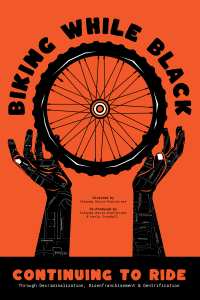
Davis-Overstreet, Price, and Strong-Fargas all emphasized the importance of film and storytelling in influencing mindsets and policymaking.
Price described narrative strategy as critical when coupled with other ways of making change. “I can’t legislate people’s hearts. That only happens when we are less ignorant and know more about one another and our experiences,” he said. “Film helps drive us towards a day in which we don’t have to even have this conversation.”
Davis-Overstreet added that seeing so many Black people talking about bikes and pedestrian safety is impactful. “It is a very powerful tool — a liberating tool — to do film and communications work.”
For Strong-Fargas, the film means movement. “I’m so excited about the movement and the chance for South LA to look different,” she said. “We suffer from a lot of things and one of the things we suffer from is safety.”
Some of the safety issues she brought up included policing, the importance of getting drivers to slow down, and the need to bring in more lighting to South LA.
The panelists also discussed various needs for their communities – clean and healthy neighborhoods – and strategies involving public policy and community work.
When asked about the meaning of the film poster, Davis-Overstreet discussed her art direction process with students at her alma mater, Otis College of Art and Design. She explained that the final design is representative of communities that were historically redlined and that today experience high rates of traffic violence.
“In church, you lift your hands in praise,” Davis-Overstreet said. “[The poster] shows this joy aspect, that we are going to continue to ride and push for our safety and the ability to ride in our streets.”
The screening was hosted by the UCLA Lewis Center for Regional Policy Studies, the UCLA Institute of Transportation Studies and the UCLA Planners of Color for Social Equity student group, and was held at the James Bridges Theater. For more information about the film and to host your own screening, visit bikingwhileblack.com.
Recent Posts

Meet the manager of UCLA’s new Center for Parking Policy
Three years after earning her master’s degree, Ellen Schwartz has returned to UCLA, where she’ll provide technical assistance to local and state officials throughout the policymaking process — from evaluation to implementation.
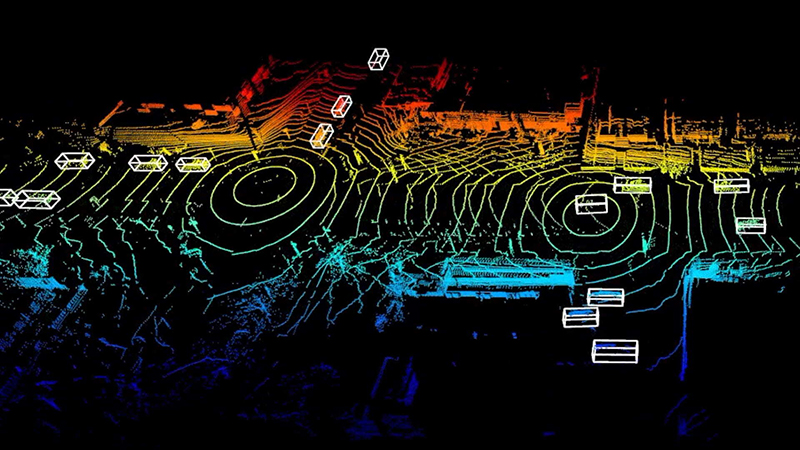
UCLA Mobility Center receives $2.5 million federal grant to advance cooperative perception technology
The CP-X initiative will develop systems that let vehicles, infrastructure and road users share real-time awareness to improve safety.
Featured Content


